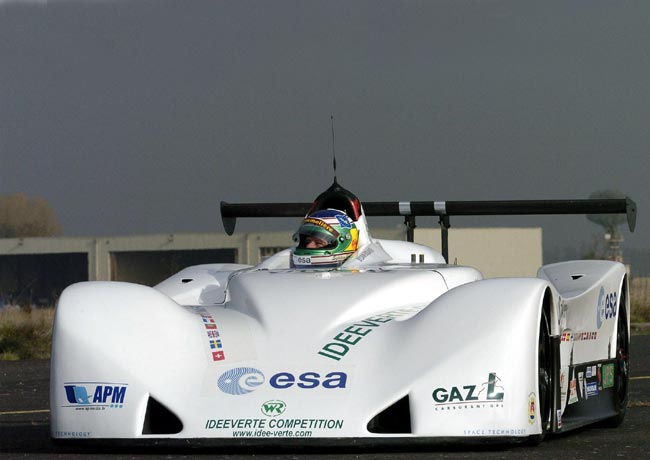'Green' Car Sets Speed Record

Get the world’s most fascinating discoveries delivered straight to your inbox.
You are now subscribed
Your newsletter sign-up was successful
Want to add more newsletters?

Delivered Daily
Daily Newsletter
Sign up for the latest discoveries, groundbreaking research and fascinating breakthroughs that impact you and the wider world direct to your inbox.

Once a week
Life's Little Mysteries
Feed your curiosity with an exclusive mystery every week, solved with science and delivered direct to your inbox before it's seen anywhere else.

Once a week
How It Works
Sign up to our free science & technology newsletter for your weekly fix of fascinating articles, quick quizzes, amazing images, and more

Delivered daily
Space.com Newsletter
Breaking space news, the latest updates on rocket launches, skywatching events and more!

Once a month
Watch This Space
Sign up to our monthly entertainment newsletter to keep up with all our coverage of the latest sci-fi and space movies, tv shows, games and books.

Once a week
Night Sky This Week
Discover this week's must-see night sky events, moon phases, and stunning astrophotos. Sign up for our skywatching newsletter and explore the universe with us!
Join the club
Get full access to premium articles, exclusive features and a growing list of member rewards.
The idea that an environmentally friendly automobile has to be small and timid may change as a space-age prototype reaches 196 mph (315 km/h), setting a new record for this type of vehicle.
The sleek LeMans prototype-style car ran on liquefied petroleum gas (LPG) and was lubricated with sunflower oil.
"The racing track is the ultimate laboratory and also a fantastic place to display the 'green' car technology to come," said Alain Lebrun, the president of the Id?eVerte Comp?tition, which developed the new automobile.
Emissions from cars running on LPG, which is primarily propane, are far less than those from traditional petroleum-burning cars. LPG is extracted from natural gas or from refinery processes. It is a gas at room temperature, but can be kept in a liquid state in high-pressure tanks.
The fuel is highly flammable, so one of the challenges of making the Id?eVerte racecar was to make it safe. For this, engineers turned to advanced technologies from the European Space Agency.
The primary exhaust system of the racecar is at 1,800 degrees Fahrenheit (1,000 degrees Celsius). Special insulation - using materials from the European Ariane rocket, which ferries satellites into space - was wrapped around the exhaust to prevent the engine from overheating and to reduce the risk of igniting a gas leak.
If the car should catch on fire, a heat shield from the Ariane's rocket engines protects the car's gas tank, thereby increasing the time from five minutes to 45 minutes before the tank's safety valve pops open due to the heat. This extra time will be important during rescue efforts.
Get the world’s most fascinating discoveries delivered straight to your inbox.
There are also three fire extinguishers on the car that turn on automatically, as well as manually. The extinguishers come from Russian rocket launchers and are similar to the devices that deploy airbags in normal commercial automobiles.
 Live Science Plus
Live Science Plus











